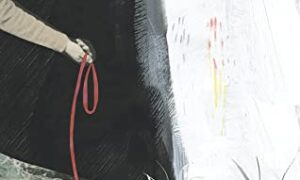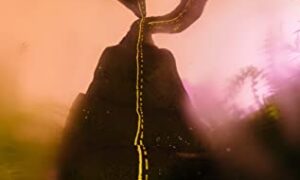 After: Nineteen Stories of Apocalypse and Dystopia by Ellen Datlow, Terri Windling
After: Nineteen Stories of Apocalypse and Dystopia by Ellen Datlow, Terri Windling
My rating: 3/5 cats



i know that this collection is a YA collection, but it really doesn’t read like one. usually in YA collections, there is sort of a range of stories, qualitatively, that reflect the range of teen readers; from stronger to more reluctant readers. but these stories, even the ones i wasn’t totally crazy about, are completely sophisticated and could be included in any adult fantasy collection. well, mostly. there is the “meh” one that didn’t really do anything for me, and seemed a little young.
oh, YA, you grow up so fast…
sometimes, even in full-length Ya dystopias, details are sacrificed. it is as though writers think “well, it is dystopian, so it doesn’t have to be logical.” i imagine it is even harder to accomplish in a short story, so my hat is off to all of the authors, and it is good to see so many different takes on the dysto-world.
The Segment – Genevieve Valentine
this is a good way to open the collection, as it highlights the idea that just because you are in a dystopian setting doesn’t mean you know the “rules” or who to trust. things are usually even more complicated than they appear. it is a good blend of “woah” and “yeah, i could see that happening,” and i liked the discovery process the reader takes along with the character in this story.
After the Cure – Carrie Ryan
this is an interesting premise: a disease causes some people to go crazy and eat other people, but once there is a cure, AFTER, what happens to the cured? how do they live with what they have done? how does society treat them??
Valedictorian – N.K. Jemisin
this one was one of my favorites, and one that i would so love to see expanded into a larger work. it was nearly perfect.
Visiting Nelson – Katherine Langrish
another good one. a very self-contained short story that manages to provide enough detail to the world, so that the reader is not left with too many questions. this is one of the more densely-written, stories, and it never feels the author is overreaching the way some of the other stories do. it is a very recognizable story, set in an unrecognizable world. in fact, tweak the setting a little, change the drug to meth, and you have a story that would fit perfectly into my beloved appalachian-noir genre.
All I Know of Freedom – Carol Emshwiller
turns out, religious cults are just as creepy in dystopias as they are for us. you would think, in a world of fewer options, joining a religious cult might look pretty good. but, no—still pretty creepy.
The Other Elder – Beth Revis
this one is among my least favorites, just because of my own personal tastes, although i really did love the ending. i just thought it was a too-complicated social system to be mooshed into a short story format, and i had some questions.
The Great Game at the End of the World – Matthew Kressel
meh. just…meh.
Reunion – Susan Beth Pfeffer
so susan beth pfeffer has teeth after all! i really liked this story because it had the casual brutality you expect to find in dystopias, and which was largely missing from her “oh no, the moooon” trilogy, where everyone was just a little too polite and cheeky, considering their circumstances. this one is short and callous and definitely worth reading.
Blood Drive – Jeffrey Ford
mandatory gun-toting in school?? how could this go wrong?? oh, like that. i really need to read more jeffrey ford. for all the blood-spatter, it was a really sweet story.
Reality Girl – Richard Bowes
this one was okay—it’s a good companion to “the segment” because it deals with entertainment and its pervasiveness. plus it’s got magical powers and some gay relationships that don’t feel forced, like “oooh lookit how gay these characters are.” this is also true of the jeffrey ford story—it is not “gay for the sake of gay” pandering, you know what i mean? it just feels genuine and right.
How Th’irth Wint Rong by Hapless Joey @ Homeskool.gov – Gregory Maguire
oh, i dunno. i wanted to like this one, but it kind of annoyed me. i understand this story and maguire’s choices, but that doesn’t mean i enjoyed reading it.
Rust with Wings – Steven Gould
this one was okay, but i see it as more of a “boy” story. nothing wrong with a boy story, but this one would fare better as a full-lengther. i need some answers. also, strictly speaking, this is not so much an “after” story as a “during” story. the after is what i wanted more of, here.
Faint Heart – Sarah Rees Brennan
this was a really ambitious short story, with multiple POVs and conflicting storylines, but i think it was pretty successful. and the ending was one i did not see coming, although i should have. it is kind of a perfect modern fairy tale.
The Easthound – Nalo Hopkinson
ooooh. this one was great, even though there were twins in it. and another ending i didn’t see coming. i am impressed with how tough some of these stories were. not “difficult to read,” but “don’t get too emotionally attached, kiddos.” because “after” usually sucks.
Gray – Jane Yolen
this is a poem. nuff said.
Before – Carolyn Dunn
this one didn’t really do anything for me, but it isn’t terrible. i just thought the limited-perspective narrator left me with too many questions. but some people like stories where you can’t know everything. in long-form pieces, i don’t mind filling in the blanks, but i find it less fun in a short story.
Fake Plastic Trees – Caitlin R. Kiernan
this one has an unusual story structure, which uses memory, the nonlinear and frequently interrupted writing of a life story, and an unreliable narrator, so the facts are occasionally murky which occasionally works against the actual storytelling, but ultimately i think it is effective and scary.
You Won’t Feel a Thing – Garth Nix
i have never read nix before, but this apparently takes place in the nix-verse, and probably someone who has read him before would enjoy it more than i did. it is fine and bleak, but i think i would have dug it more if i had had that frisson of recognition.
The Marker – Cecil Castellucci
this is another favorite story, and one which is a good way to end the collection, because it is one of the few stories that suggests change is possible, and there might be hope after all.
the only problem with these stories is that they are stories, and you never get to see these scenarios fleshed out into a bigger-picture. but overall i think this is a good collection, and i really appreciate that the foreword gives a “new” definition of dystopia as it is being reshaped by the current YA publishing industry, and a thoughtful afterword that gives a brief overview of the history of the dystopia in literature.and in writing this review, i found i enjoyed it more in retrospect, so i am going to slap another star cat on it. try and stop me…
read my book reviews on goodreads







